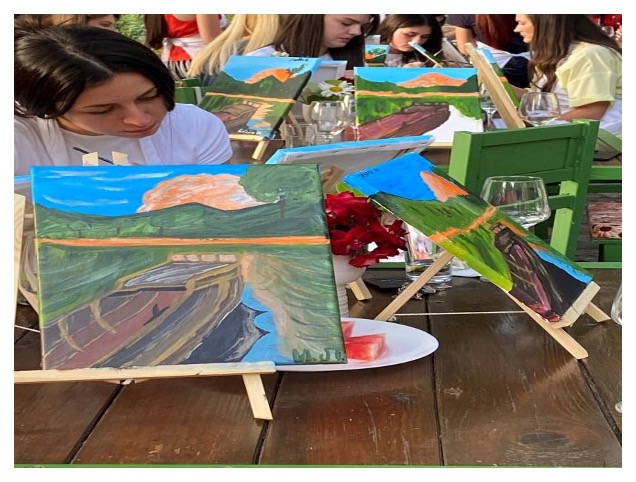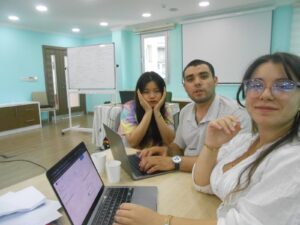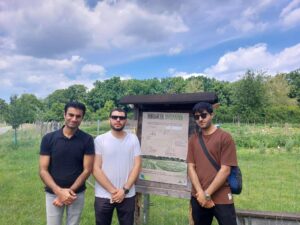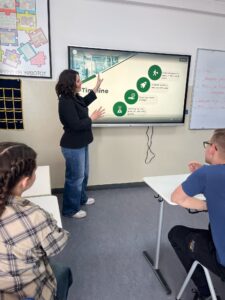I’m Aleksandra, but everyone calls me Saska. For as long as I can remember, I’ve been fascinated by the relationship between creativity and nature. Through the FoodBack project, I had the opportunity to deepen this connection and to develop an idea that is both artistic and sustainable: producing natural paints for artists from food waste.
The concept began simply: what if the orange peels, cabbage leaves, or lemon rinds that cafés and restaurants usually throw away could be transformed into something useful, even beautiful? During the job shadowing experience, I explored this idea further. With the right processes, these leftovers can be cooked, mixed with natural fixatives, and turned into paints—rich in color, safe to use, and environmentally friendly.
Even the by-products of this process are not wasted: they are composted and used to fertilize my small home garden in Montenegro,  where spinach and other plants grow. Those same plants can then become the source of new pigments, creating a truly circular cycle. This is what inspired the name of our business idea: “Colours Without Guilt.”
where spinach and other plants grow. Those same plants can then become the source of new pigments, creating a truly circular cycle. This is what inspired the name of our business idea: “Colours Without Guilt.”
The workshops and activities during the job shadowing were a turning point for me. Thanks to mentors and facilitators, I was introduced not only to sustainability and permaculture, but also to the practical side of entrepreneurship. Writing a business plan for the first time was both challenging and exciting. Suddenly, my creative idea had structure: a strategy, a potential market, a plan for growth.
The experience combined training on project design and NGO work with hands-on activities such as planting medicinal herbs and joining environmental actions. These moments showed me how a sustainable vision is built step by step, with care and persistence.
FoodBack made me realize that sustainability is not an abstract concept—it can be a business model. Our natural paints are not just products; they are an example of how circular economy principles can create value from what is usually considered waste. Selling these paints to artists, schools, kindergartens, and eco-friendly shops could also spark conversations about reducing waste and reconnecting with nature.
For me, this is not only an idea for the future. I plan to start my own business in Montenegro this year, based on the plan developed during FoodBack. I know it won’t be easy, but thanks to this experience I feel prepared and motivated.
Beyond the technical skills, what I will always treasure from FoodBack is the community. I met young people from different countries, shared meals, exchanged experiences, and learned new perspectives. Together, we discovered that building sustainable food systems is not only about production—it’s also about relationships, creativity, and cultural exchange.
When I think back to my job shadowing, I remember not only the jars of natural paint but also the laughter at the table, the stories shared during workshops, and the mentors who encouraged us to be bold with our ideas.
I return home with gratitude and excitement. FoodBack gave me the courage to move forward, the knowledge to make my idea stronger, and the vision to see sustainability as a way of living. My dream is now clearer than ever: to bring more colours without guilt into the world, and to prove that even waste can become art.
Saska




